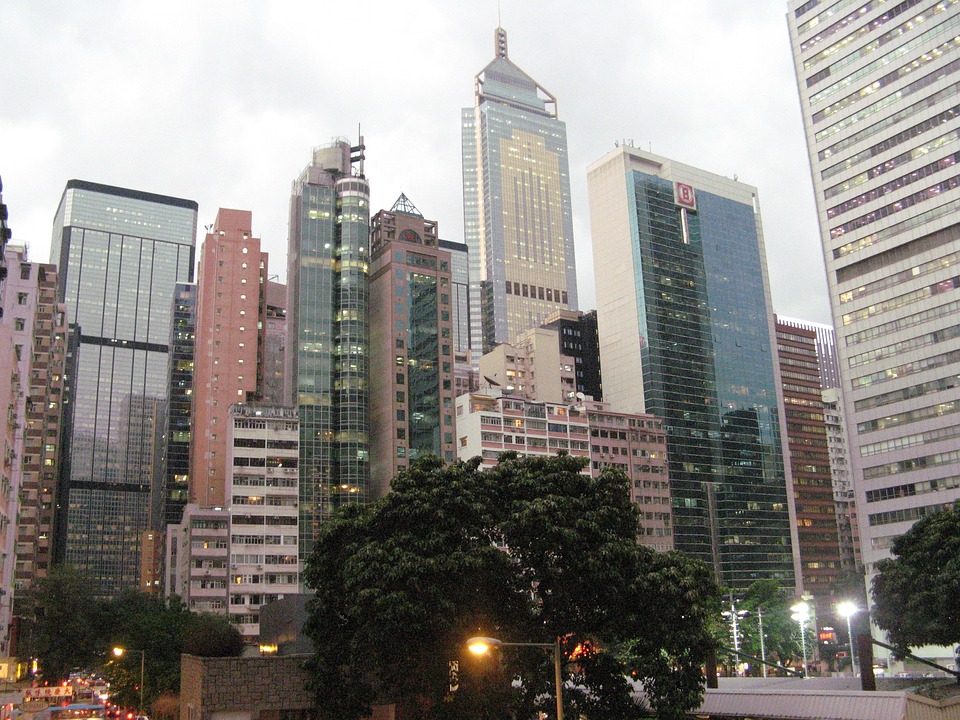Introduction: Why Ayodhya is the Next Agro-Export Hub
Ayodhya, Uttar Pradesh, is not only India’s spiritual heartland but also a strategic gateway to one of the world’s most lucrative markets: the Gulf Cooperation Council (GCC) countries. With a combined population of 54 million and a food import bill exceeding $40 billion annually, Gulf nations like the UAE, Saudi Arabia, and Qatar rely heavily on Indian agro-products. Uttar Pradesh, India’s largest producer of pulses and second-largest vegetable supplier, positions Ayodhya-based entrepreneurs to tap into this demand.
This 2,000-word guide provides a commercial blueprint for launching an import-export business from Ayodhya, covering:
- Legal registrations (IEC, APEDA, FSSAI).
- Sourcing strategies for pulses and vegetables.
- Connecting with Gulf buyers via B2B platforms and trade shows.
- Logistics, shipping, and compliance.
- Government subsidies to maximize profits.
Section 1: Understanding the Gulf Market Opportunity
1.1 Why Gulf Countries Need Indian Agro-Exports
- Demand Drivers:
- Diaspora Demand: Over 9 million Indians in the GCC, creating a $15 billion market for Indian staples like toor dal, chana dal, and fresh produce.
- Climate Limitations: Less than 2% of Gulf land is arable, forcing reliance on imports for 90% of food needs.
- Health Trends: Growing demand for organic pulses and frozen vegetables in premium markets like Dubai and Qatar.
- Top Products with High Margins:ProductGulf Price (per kg)UP Sourcing Price (per kg)MarginToor Dal₹140–160₹80–9040–50%Frozen Peas₹120–150₹50–6060–70%Organic Turmeric₹300–400₹150–20050–60%
1.2 Competitive Advantages of Ayodhya
- Proximity to Agricultural Belts:
- Pulses: Ayodhya is 150 km from Lucknow and Kanpur, UP’s largest pulse trading hubs.
- Vegetables: Connect with FPOs in Barabanki (90 km away), a major vegetable-producing district.
- Cultural Branding: Market products as “Ayodhya Heritage” to appeal to the Gulf’s Indian diaspora.
Keyword Tip: Target long-tail phrases like “profit margin on dal export to UAE” or “best vegetable suppliers near Ayodhya.”
Section 2: Legal Setup – Registrations, Licenses, and Certifications
2.1 Business Structure Options
Choose the right entity to minimize liability and taxes:
- Sole Proprietorship: Simplest for startups (₹0 registration cost).
- LLP/Limited Company: Better for securing loans and partnerships (₹10,000–₹15,000).
2.2 Mandatory Registrations
- IEC Code (Import Export Code):
- Cost: ₹5,000 (non-refundable).
- Process: Apply online via DGFT (https://dgft.gov.in) with PAN, Aadhaar, and bank details.
- Timeline: 3–5 working days.
- APEDA Registration:
- Why: Required for exporting agricultural products.
- Steps:
- Submit Form A (https://apeda.gov.in) with GST, IEC, and bank details.
- Pay ₹5,000 fee.
- Post-Registration: Access APEDA’s exporter directory for visibility.
- FSSAI License:
- Types: Basic (₹2,000/year) for turnover < ₹12 lakh; State (₹5,000/year) for larger businesses.
- Compliance: Mandatory for Gulf’s food safety audits.
2.3 Certifications for Gulf Markets
- Halal Certification: Required for UAE/Saudi Arabia.
- Cost: ₹15,000–₹20,000 via agencies like Halal India.
- Process: Facility inspection + ingredient audits.
- Phytosanitary Certificate: Issued by UP’s Department of Agriculture for vegetables (₹500/product).
- GSO Compliance: Meet Gulf Standardization Organization norms for packaging and labeling.
Pro Tip: Use DGFT’s “Niryat Bandhu” mentorship program for free guidance on certifications.
Section 3: Sourcing Strategies – Partnering with UP Farmers and FPOs
3.1 Building a Supplier Network
- Option 1: Farmer Producer Organizations (FPOs)
- Top FPOs in UP:
- Barabanki Vegetable Growers FPO: Supplies tomatoes, onions, and potatoes.
- UP Pulses Federation: Sources toor dal, masoor dal, and chana from 50,000+ farmers.
- Benefits: Lower costs (no middlemen) + APEDA-certified quality.
- Top FPOs in UP:
- Option 2: Wholesale Mandis
- Lucknow Mandi Parishad: Prices 10–15% lower than retail markets.
- Kanpur Sabzi Mandi: Daily auctions for bulk vegetable purchases.
- Option 3: Government Agencies
- NAFED: Offers MSP-based procurement for pulses.
- UP Agro: Connects exporters with organic farmers in Pratapgarh and Allahabad.
3.2 Quality Assurance Protocols
- Moisture Testing: Use handheld moisture meters (₹5,000–₹10,000) to ensure dal has < 10% moisture.
- Pesticide Residue Checks: Partner with labs like SGS India (₹2,000/sample).
- Packhouse Facilities: Invest in grading/sorting machinery (₹2–5 lakhs) to meet Gulf size standards.
3.3 Cost-Saving Tips
- Bulk Buying: Negotiate 15–20% discounts for orders > 10 tons.
- Pre-Monsoon Stocking: Purchase pulses in April–May when prices drop by 20–30%.
Keyword: “How to find APEDA-certified dal suppliers in UP”
Section 4: Finding Buyers in the Gulf – B2B Platforms, Trade Shows, and Local Agents
4.1 Digital Strategies
- Alibaba.com:
- Optimize Your Profile: Use keywords like “Ayodhya-based dal exporter” or “fresh vegetable supplier to UAE.”
- Paid Ads: Target Gulf buyers with keywords like “buy toor dal in bulk” (budget: ₹20,000–₹30,000/month).
- Dubai Trade Portal:
- Registration: Free for basic access; premium membership (₹15,000/year) unlocks buyer contacts.
- Post Trade Leads: Example: “100 MT monthly supply of organic chana dal from Ayodhya, FOB Mundra Port.”
- Social Media:
- LinkedIn: Connect with Gulf-based “Procurement Managers” using InMail campaigns.
- Instagram: Share reels of farmers harvesting pulses with hashtags like #AyodhyaToDubai.
4.2 Offline Strategies
- Gulfood Dubai:
- Cost: ₹2–3 lakhs for a 3×3 meter booth (APEDA reimburses 50%).
- ROI: Generate 50–100 leads in 3 days.
- India International Trade Fair (IITF):
- Focus: Meet Gulf importers scouting for Indian suppliers (November, Delhi).
- Local Distributors:
- Commission Agents: Hire agents in Dubai (5–7% commission) to negotiate with hypermarkets like Lulu.
- Warehousing: Rent storage in Jebel Ali Free Zone (₹50,000/month) for faster order fulfillment.
4.3 Sample Pitch to Gulf Buyers
“Dear [Buyer Name],
We are Ayodhya Agro Exports, APEDA-certified suppliers of premium toor dal and frozen vegetables sourced directly from UP farmers. Our competitive FOB Mundra price is ₹90/kg for dal, with vacuum-sealed packaging meeting GSO standards. Attached are lab reports and a product catalog. Let’s schedule a call to discuss bulk orders.”
Keyword: “How to write an export inquiry email to Gulf buyers”
Section 5: Logistics, Shipping, and Customs Clearance
5.1 Choosing Between Sea and Air Freight
- Sea Freight (Pulses/Non-Perishables):
- Route: Mundra Port (Gujarat) → Jebel Ali Port (UAE).
- Cost: ₹15–20/kg (20-foot container: ₹1.2–1.5 lakh).
- Transit Time: 7–10 days.
- Air Freight (Perishables):
- Route: Lucknow Airport → Dubai International Airport.
- Cost: ₹80–120/kg (tomatoes, leafy greens).
- Transit Time: 6–8 hours.
5.2 Packaging Guidelines
- Pulses:
- Vacuum-sealed 1/5/10 kg bags with Ayodhya-themed branding.
- Outer cartons marked “Keep Dry” and “Made in India – APEDA Certified.”
- Vegetables:
- Corrugated boxes with ice packs (for freshness).
- Use ethylene absorbers for longer shelf life.
5.3 Customs Documentation
- Commercial Invoice: Declare FOB/CIF value.
- Packing List: Item-wise weight and HS codes (e.g., 0713.10 for dried peas).
- Certificate of Origin: Apply via UP’s DGFT office for duty-free access under India-UAE CEPA.
- Bill of Lading/Airway Bill: Issued by shipping lines like Maersk or Emirates SkyCargo.
5.4 Managing Risks
- Marine Insurance: Cover shipments at 0.5% of cargo value (e.g., ₹5,000 for ₹10 lakh consignment).
- Force Majeure Clauses: Protect against delays due to political unrest or natural disasters.
Pro Tip: Use FedEx’s “Trade Networks” for door-to-door delivery with pre-cleared customs.
Section 6: Financial Planning – Costs, Funding, and Profit Margins
6.1 Startup Costs Breakdown
| Expense | Estimated Cost |
|---|---|
| Registrations (IEC, APEDA) | ₹10,000 |
| Supplier Advances | ₹2–5 lakhs |
| Logistics (First Shipment) | ₹1–2 lakhs |
| Marketing (Digital/Offline) | ₹50,000–₹1 lakh |
| Total | ₹4–9 lakhs |
6.2 Funding Options
- MSME Loans: SIDBI offers ₹50 lakh at 8.5% interest for agro-exporters.
- UP Export Promotion Policy: 25% subsidy on packaging machinery (up to ₹5 lakh).
- Export Credit Insurance: ECGC covers 75% of payment defaults (premium: 0.5–1% of invoice value).
6.3 Maximizing Profit Margins
- Bulk Shipping: Save 20% by booking full container loads (FCL).
- Negotiate CIF Terms: Shift freight costs to buyers for higher margins.
Section 7: Government Incentives and Subsidies
- Transport and Marketing Assistance (TMA) Scheme:
- Benefit: 50% reimbursement on air/sea freight for MSMEs.
- Eligibility: Minimum export turnover of ₹10 lakh.
- UP Export Promotion Policy 2023:
- Tax Rebates: 100% exemption on stamp duty for export units.
- Infrastructure Support: Subsidized warehouse rentals in Ayodhya and Lucknow.
- APEDA Subsidies:
- Exhibitions: 50% reimbursement for Gulfood participation.
- Branding: ₹5 lakh grant for creating “Ayodhya Organic” logos.
Section 8: Overcoming Challenges – Tips from Successful Exporters
8.1 Payment Risks
- Secure Terms: Use irrevocable Letters of Credit (LCs) confirmed by Gulf banks like Emirates NBD.
- Escrow Services: Platforms like Escrow.com hold payments until delivery confirmation.
8.2 Cultural Nuances in Gulf Negotiations
- Relationship Building: Gulf buyers prioritize trust—share family photos or send Diwali gifts.
- Negotiation Style: Avoid hard selling; use phrases like “Let’s find a win-win solution” in Arabic (“هيا نجد حلا يفيد الطرفين”).
8.3 Logistics Delays
- Buffer Stock: Maintain 10–15% extra inventory to cover shipment delays.
- Track Shipments: Use Maersk’s “Captain Peter” app for real-time container tracking.
Section 9: The Future of Agro-Exports from Ayodhya
- Trend 1: AI-driven demand forecasting tools (e.g., Cropin) to align production with Gulf buying cycles.
- Trend 2: Blockchain traceability for “farm to port” transparency, appealing to eco-conscious Gulf consumers.
- Trend 3: Direct-to-consumer (D2C) exports via Amazon.sa or Noon.com for higher margins.
Conclusion: Your Ayodhya-Gulf Export Roadmap
Starting an agro-export business from Ayodhya requires blending UP’s agricultural strengths with Gulf market savvy. By securing APEDA certifications, partnering with FPOs, and leveraging platforms like Gulfood and Alibaba, you can build a scalable venture with 30–50% margins.




